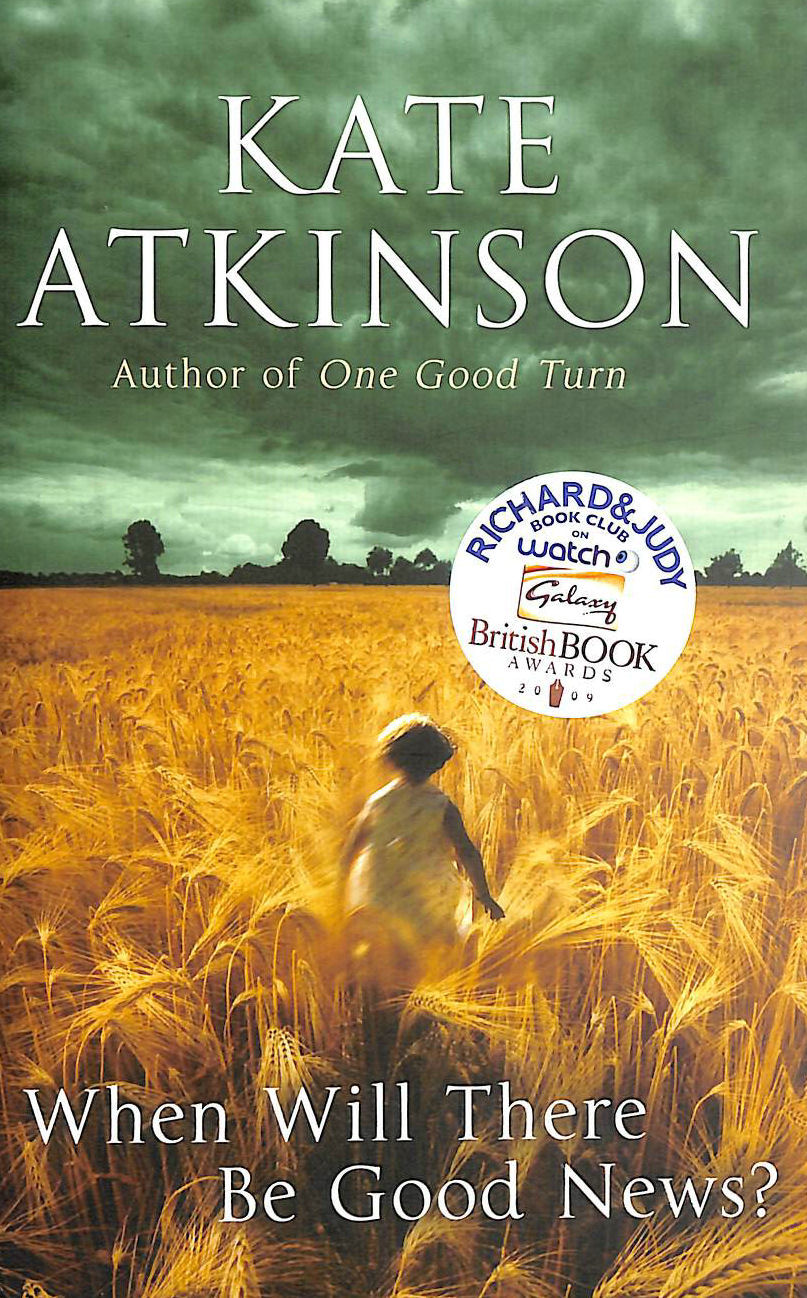barbara fister reviewed When Will There be Good News? by Kate Atkinson (Jackson Brodie, #3)
Review of 'When Will There be Good News?' on 'LibraryThing'
A 4MA discussion book, and one that met with varied reactions. I loved it. I remember when reading her first Brodie book being amazed at the coincidences, then coming to terms with what it seems to me she's doing. She's not writing crime fiction, and she's not mocking it or transcending anything. She's reacting, though (I think) to what crime fiction does, which is take a group of people and a terrible thing (a murder, usually), explore how those people react to the terrible thing, the reason for which or the resolution of which is unknown, then pull it all together into a solution - both of the crime and of the sense that crimes or other terrible things (like sudden death or betrayal or deviant behavior or jealousy or greed) have the potential to challenge the ways we organize our belief (in God, in the police, in the basic …
A 4MA discussion book, and one that met with varied reactions. I loved it. I remember when reading her first Brodie book being amazed at the coincidences, then coming to terms with what it seems to me she's doing. She's not writing crime fiction, and she's not mocking it or transcending anything. She's reacting, though (I think) to what crime fiction does, which is take a group of people and a terrible thing (a murder, usually), explore how those people react to the terrible thing, the reason for which or the resolution of which is unknown, then pull it all together into a solution - both of the crime and of the sense that crimes or other terrible things (like sudden death or betrayal or deviant behavior or jealousy or greed) have the potential to challenge the ways we organize our belief (in God, in the police, in the basic goodness of most people in a crisis, in our own untested morality). That's one of the reasons mysteries are satisfying. They give us dramatic discord and they involve us in resolution, and they do it entertainingly, whether dark or light, take your pick. It seems to me that Atkinson (at least in the Brodie books) is taking all the incident and drama we expect in a mystery, but instead of logic and those social organizations that are there to protect us driving the story line and the weaving together of plot strands, coincidence is what makes things go forward. And it's not just randomness; Its as if randomness has a strange quality that charges all the particles in the book so they'll be drawn together. What she's doing is both giving us the ripping good story we crave, but giving a completely different reason for how the story will move along. Where in other mysteries there would be reasons for every connection that's made (even if the reasons were a strain, and not reasonable, really, there'd be reasons) here there are no reasons. Just loads of points of connection. As if to say: What if that connectedness and meaning we crave were there, but not as usual? What if they were connected in some other way, an almost opposite way to reason. I find these such joyful books - and I feel the same uplift as when a really good crime fiction writer is in a really generous mood and lets things click satisfyingly into place, though it might be more realistic or more modern to let them stay broken. These books wouldn't work at all if a) she were not as good a writer as she is - she's funny and touching and wise and just plain good - and b) she were smirking at her cleverness; look, I'm taking a genre and bending it and aren't I doing something amazing? She doesn't smirk at all, at the genre or the reader or the characters. returnreturnOkay, so she's messed with the rules of nature, but I like the way she's done it. Very much.

